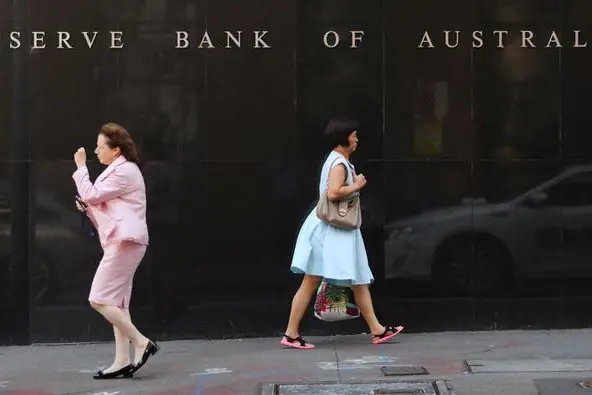PHOTO
Reserve Bank of Australia Governor Michele Bullock said on Tuesday the “Taylor Swift inflation” effect has forced some spending adjustments, including in her own children, but played down the policy impact as the pop singer prepares to arrive in the country.
Swift's Eras Tour is the first in history to gross over $1 billion, according to industry estimates, with billions more spent by fans on transportation and accommodation.
Her world tour, along with others by acts including Beyonce and Coldplay, has been cited by some experts as a factor in temporarily spurring inflation in several countries including the United States. Others have said the impact of the concerts on inflation are overstated.
"I know all about Taylor Swift inflation as well, myself" Bullock told a news conference in response to a question on whether the huge demand for Taylor Swift tickets was an example of the type of services inflation mentioned frequently as a policy risk by the RBA.
Citing the example of her own children, Bullock said that fans had adjusted their spending elsewhere to afford the tour tickets and associated spending.
"People are deciding what's really important to them and what's not as important to them,” Bullock said, after the RBA had earlier held rates steady.
"Clearly, for a lot of people, Taylor Swift is very important."
Swift begins the first of seven Australian dates in Melbourne on Feb. 17, on a tour where top-price tickets cost A$1,250 ($814), and many fans are expected to travel long distances to attend - including from overseas.
Michael Johnson, CEO of Accommodation Australia, the trade body representing the hotel industry, said “phenomenal” demand from Swift’s tour had resulted in very high hotel occupancy rates in Sydney and Melbourne, the two cities Swift is playing in, and would likely benefit other hospitality sectors.
“We know that all of the hospitality (industry), restaurants and bars and tourism attractions, all benefit, because people won’t only come for one night, sometimes they'll come for two or three and they'll do some of those activities and events that are popular in the respective cities that they're in,” he said.
Bullock, who took over as RBA governor in September, said the central bank's rate rises could have had an indirect impact on services price inflation, including things like electricity and insurance.
“It can indirectly impact, because these sorts of costs go into business costs, obviously - non-labour costs - and to the extent that demand is tempered, it tempers the ability of them to pass on costs.”
“This is the way that you can end up with an indirect impact of monetary policy on these sorts of services.”
($1 = 1.5363 Australian dollars) (Reporting by Alasdair Pal and Stella Qiu in Sydney Editing by Shri Navaratnam)





















